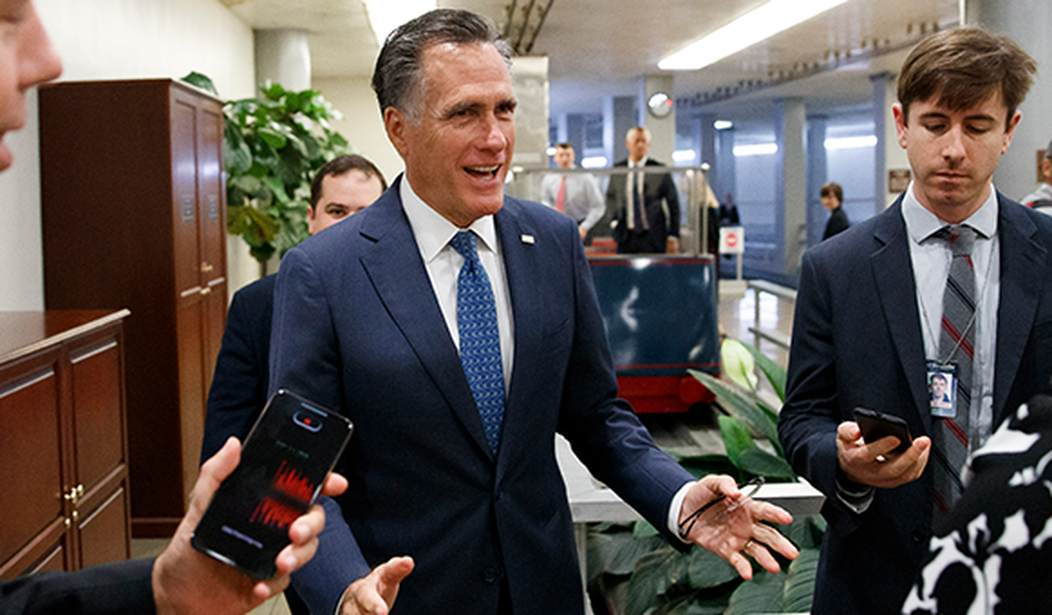Ten? Well, it’s a start, but the bipartisan group of senators don’t have enough support to force a vote … yet. Late yesterday, the group announced that they had reached a deal on an infrastructure package that would cost $1.2 trillion over eight years, but which would include no new taxes.
How do they pay for it? Well, it’s a start, I said …
U.S. Senator Bill Cassidy, M.D. (R-LA) and the group of 10 senators working on a bipartisan infrastructure package released the following joint statement:
“Our group – comprised of 10 Senators, 5 from each party – has worked in good faith and reached a bipartisan agreement on a realistic, compromise framework to modernize our nation’s infrastructure and energy technologies. This investment would be fully paid for and not include tax increases. We are discussing our approach with our respective colleagues, and the White House, and remain optimistic that this can lay the groundwork to garner broad support from both parties and meet America’s infrastructure needs.”
In addition to Cassidy, the group is comprised of Senators Kyrsten Sinema (D-AZ), Mitt Romney (R-UT), Joe Manchin (D-WV), Rob Portman (R-OH), Jon Tester (D-MT), Susan Collins (R-ME), Mark Warner (D-VA), Lisa Murkowski (R-ME), and Jeanne Shaheen (D-NH).
The phrase “not include tax increases” might be a stretch. According to the New York Post, one of the plans for generating the necessary revenue involves indexing the gas tax to inflation, which would increase the tax paid by Americans at the pump. That was Mitt Romney’s idea, apparently, offered just days after he insisted that no “new” taxes would be considered:
Despite the statement’s claim, it appears unclear how the proposal would be paid for. Republicans have insisted that an infrastructure package would not be paid for by rolling back the 2017 tax cuts. The White House, for its part, has shut down any suggestion that unused coronavirus relief funds could be used to pay for it.
Tester suggested that potential revenue from uncollected income taxes could be used as a pay-for, while Romney said the package proposes that the gas tax be indexed to rise at the rate of inflation. The federal gas tax, now at 18.4 cents per gallon, has not increased since 1993.
If the gas tax gets re-indexed to make up for 28 years, it’s going to feel very much like a “new” tax. Starting the indexing now won’t help much, although it would raise extra funds by the end of the eight-year cycle, especially at the rate inflation is increasing at the moment. It also creates a bit of a vicious cycle; fuel prices are a force multiplier for inflation as resources and finished goods get transported through the manufacturing and distribution cycles. If the gas tax rate keeps rising, that creates inflationary pressures of its own, as is happening with fuel prices at present.
None of this matters until this new bipartisan group gets at least twice as large. It will take ten Republicans to defeat a GOP filibuster attempt, and probably just as many Democrats to pressure Chuck Schumer into action. The Hill reports that Schumer and other Senate progressives aren’t terribly enthusiastic about this idea, as it might preclude a later massive spending package through reconciliation:
Progressive Democrats are wary of an emerging deal on infrastructure being negotiated by five Republican and five Democratic senators, fearing it could make it tougher to get prized priorities to President Biden’s desk.
The progressives are specifically worried that passing a bipartisan infrastructure package consisting of the most popular infrastructure spending priorities — such as funding for roads, bridges, rail, public transport, airports and rural broadband internet — will make it tougher to marshal support for a bigger reconciliation package down the road.
That bigger package could include many progressive prizes, such as climate change legislation, $400 billion for long-term home care, and language to lower the cost of prescription drugs.
Bernie Sanders and Sheldon Whitehouse both took potshots at the deal, calling it inadequate. Whitehouse demanded more spending on global-warming priorities. However, it’s tough to see how this would impede the latter, especially if Senate Democrats don’t have to waste their single bullet of reconciliation on infrastructure. Why not pass this bill with Republican support, and then circle back (as Jen Psaki is won’t to say) next year for climate change legislation? They will have reconciliation available at that time, and there isn’t a hint of Republican support for the progressives’ Green New Deal plans. That’s when reconciliation is best used — when there’s no hope of engagement, unlike infrastructure.
Of course, Joe Manchin won’t ever agree to the massive tax increases that will be required under reconciliation for such a global-warming package. In fact, Democrats might lose a few senators over that point in an election year. But that’s equally true now, which is why the infrastructure proposals at this point have stripped all that nonsense away.
At any rate, the key to this proposal will be to see how quickly five more Senate Republicans join the group. If it happens fast, Joe Biden might feel some pressure to adopt this package just to get some infrastructure work under way and score at least an intermediate legislative win.








